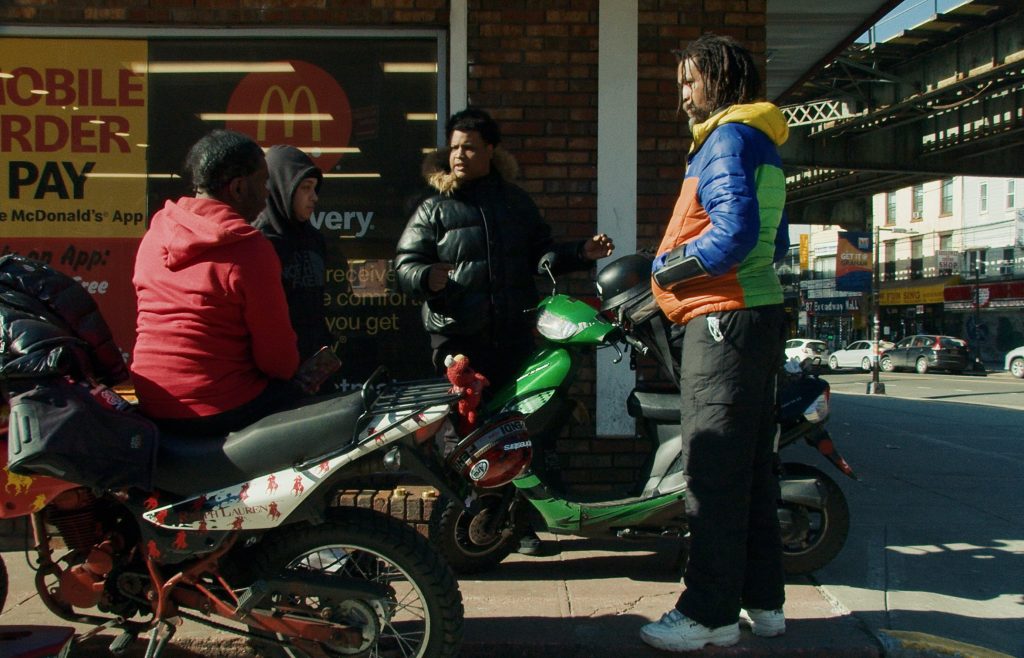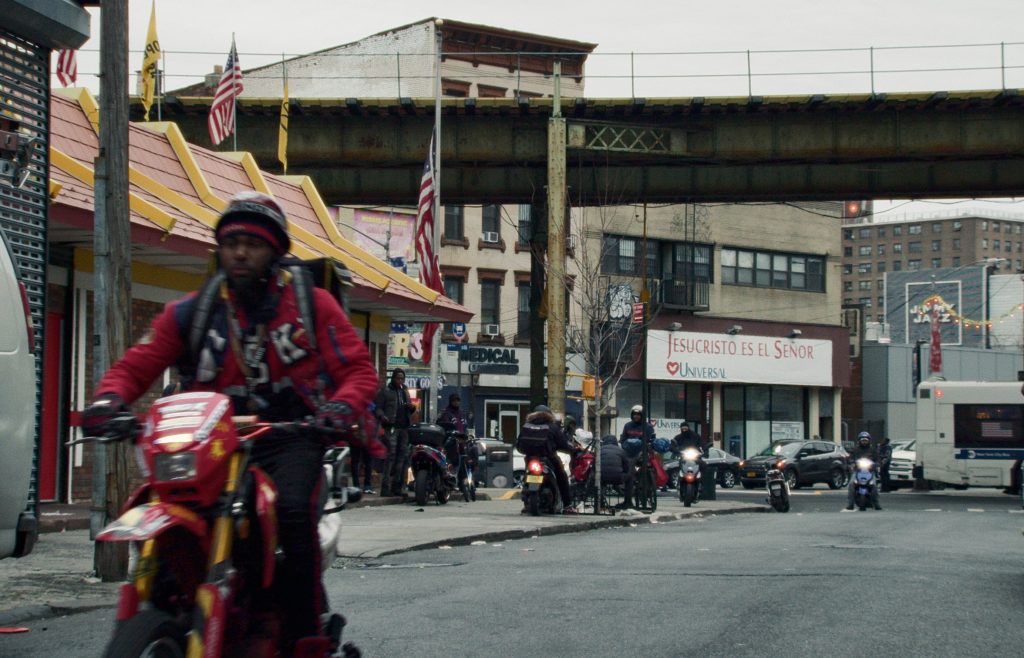On a corner in Brooklyn, a small community of delivery workers gathers to discuss their beliefs, goals, and motivations while waiting for their next job in Araque Blanco’s documentary The (Other) 700 Club.

The gig economy has been a driving force in shaping the future of work for many years. It differs from traditional ways of working as there is no employer-employee relationship. Drivers working for Deliveroo, Just Eat, Uber, and Amazon are all part of the gig economy, with the workers, rather than holding down permanent jobs and set hours, tending to be on zero-hour contracts. They are also classed as independent contractors, and while not being contracted to a specific employer, it means you have greater flexibility in terms of hours and the people you work for. It can also result in receiving no hours or shifts at all, and as you are classed as self-employed, it also leaves people with little or no employee rights.
As the short documentary progresses, we will see people who struggle to make ends meet, having to fix their own transport without financial support from the companies they work for, and without any form of safety equipment to protect them from the busy city streets they travel on every single day.
Blanco’s intimate and immersive documentary takes us into the world of the gig economy by introducing us to some of the people who work within it. In Brooklyn, New York delivery drivers congregate outside a McDonald’s where they sit and wait around for their phones to ping with a job, sometimes it will, but most times it doesn’t. One person tells us they have a family to take care of at home, and the next thing we hear is they earned $40 dollars last week. It’s a desperate situation that can scarcely be referred to as employment. The documentary manages to say quite a lot about the failures of modern society in a short space of time but Blanco makes sure that the story is about its characters and not the issues. The McDonald’s where they all gather together is number 700 Broadway, which becomes their unofficial headquarters and the 700 club referred to in the film’s title.

A short film coming in at just under 10 minutes, the documentary runs in a sort of quiet tone, with each person treated matter of factly. Blanco makes no judgements; he lets the images play out and the characters say what they want. Some of the people we meet are very spiritual and with the majority of them living on the breadline and in abject poverty, their faith is constantly challenged. The juxtaposition of hearing people say if they get a job it is God’s will but if they don’t and end up penniless that week it is also part of God’s plan, is very strange to hear. No matter what obstacles they come up against they still trust and believe in their God implicitly.
Although Blanco uses intimate camerawork, his anger and confusion at his findings are unmistakable. His drive to tell the stories of these ordinary citizens is clearly very strong and he isn’t interested in letting anybody off the hook with a happy ending.

Beautifully photographed and edited with searing honesty, The (Other) 700 Club is relentlessly bleak yet, with a recession and cost of the living crisis currently taking place all over the world, the reassuring thing is that there are directors like Blanco working in the film industry who can make sure stories like this and people like this are not missed, forgotten or left behind, but seen, heard, and remembered.
